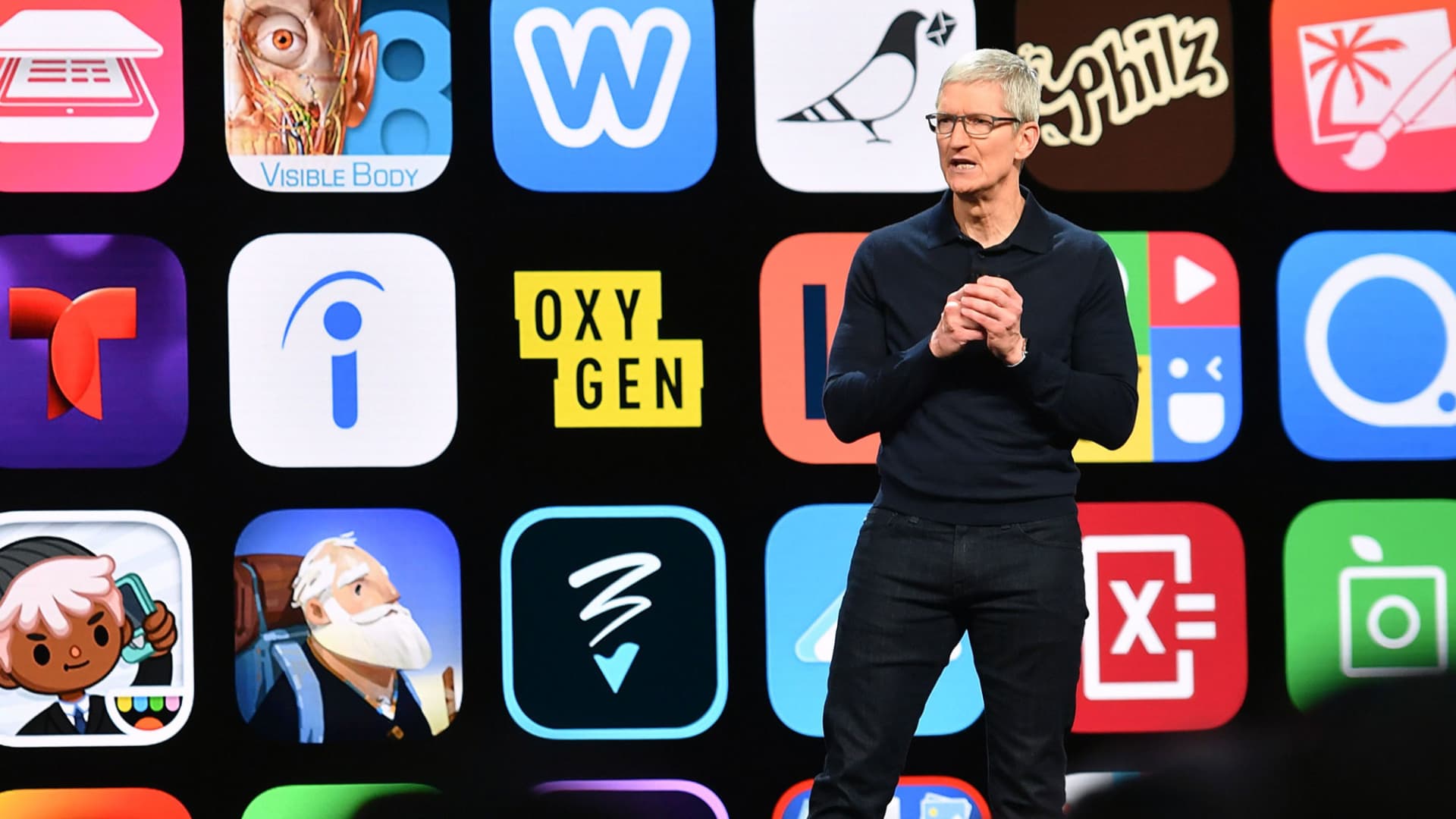Apple’s services slowdown is potential concern for investors focused on profit margins

For over half a decade, Apple has been touting its services business as a growth engine that will make up for smart phone saturation and provide healthier profits to investors.
That story may be losing some of its potency.
In its quarterly earnings report on Thursday, Apple beat on the top and bottom lines. But the services business was a weak spot in an otherwise better-than-expected report. The unit grew 12% from a year earlier to $19.6 billion, trailing the $19.7 billion average analyst estimate, according to Refinitiv.
It was also the slowest growth rate since the fourth quarter of 2015 for the services unit, which includes Apple Music, iCloud storage, App Store revenue, Apple Pay and warranties. The current quarter doesn’t look to be any better. Apple CFO Luca Maestri said that in the September period, the services business would grow less than 12% due to macroeconomic conditions and a strong U.S. dollar.
Apple shares rose in extended trading on Thursday on the strength of iPhone and iPad sales, which topped estimates. But Wall Street has reason to be concerned based on the slowdown in services, which recorded growth of 27% in fiscal 2021 and 16% in 2020, the first year of the pandemic.
Investors generally like Apple’s move into services, because the products are more profitable than hardware and often bring in recurring revenue. The unit had a gross margin, or the profit left after accounting for the cost of goods sold, of 71.5% in the latest quarter, compared to Apple’s overall gross margin of 43.3%.
Morgan Stanley analysts wrote earlier this month that Apple’s long-term valuation could rise by 30% if the company focused on making money from its current customers through expanded services.
“We believe Apple shares undervalue the lifetime value of an Apple user,” Morgan Stanley analyst Erik Woodring wrote, citing services growth as a key investment driver.
Maestri said the services business performed in line with its expectations. And even with growth slowing to 12%, it still saw more robust expansion than the company as a whole, which grew by 2%.
Apple CEO Tim Cook said the services division was affected by the economic situation. In particular, he cited the company’s ads business, which is one of the smaller services.
“Digital advertising was clearly impacted by the macroeconomic environment,” Cook said. “It’s a mixed bag in terms of what we believe that we saw.”
Covid-19 shutdowns may have also made services growth “lumpy,” leading to difficult year-over-year comparisons, Maestri said.
“There have been lockdowns and reopenings and so on,” Maestri said. “So it’s very difficult to talk about a steady state growth rate for our services business.”
Maestri said the number of iPhone users is still growing, suggesting that the services business can continue to expand by bringing in new customers. He added that music, cloud services, AppleCare warranties and payments all hit record revenue levels during the quarter.
The company didn’t say anything about licensing fees, such as the payments Google makes to Apple to be the iPhone’s default search engine, or App Store revenue. Analysts say those are among the largest services components.
